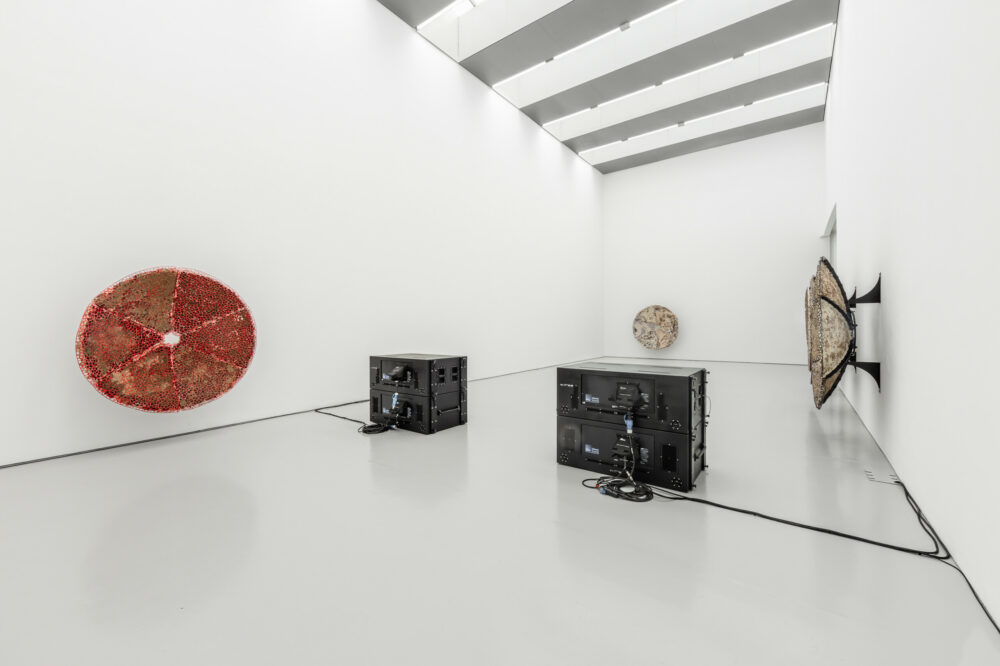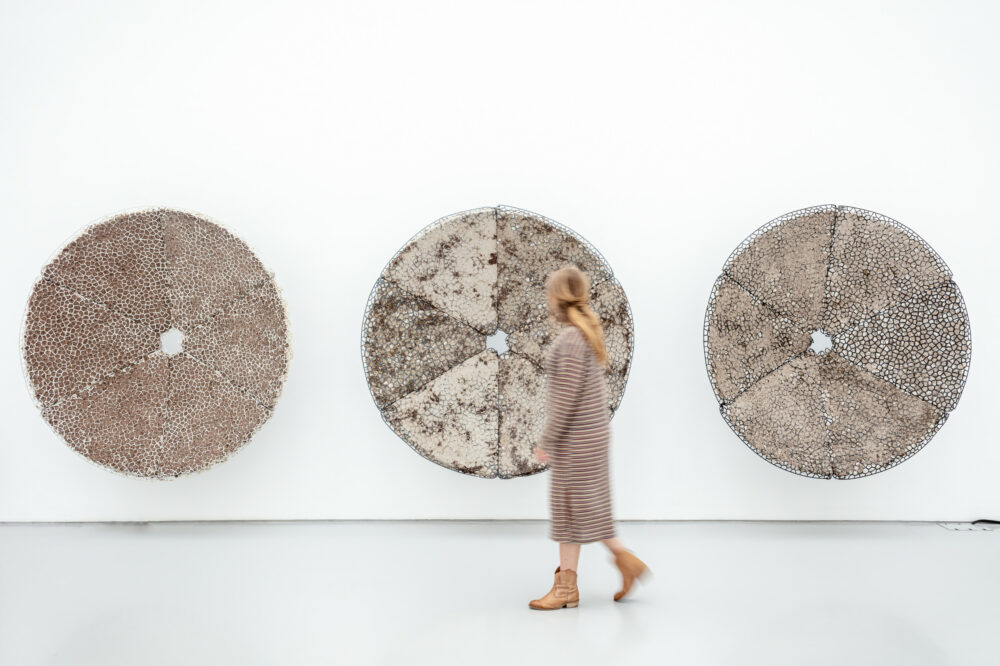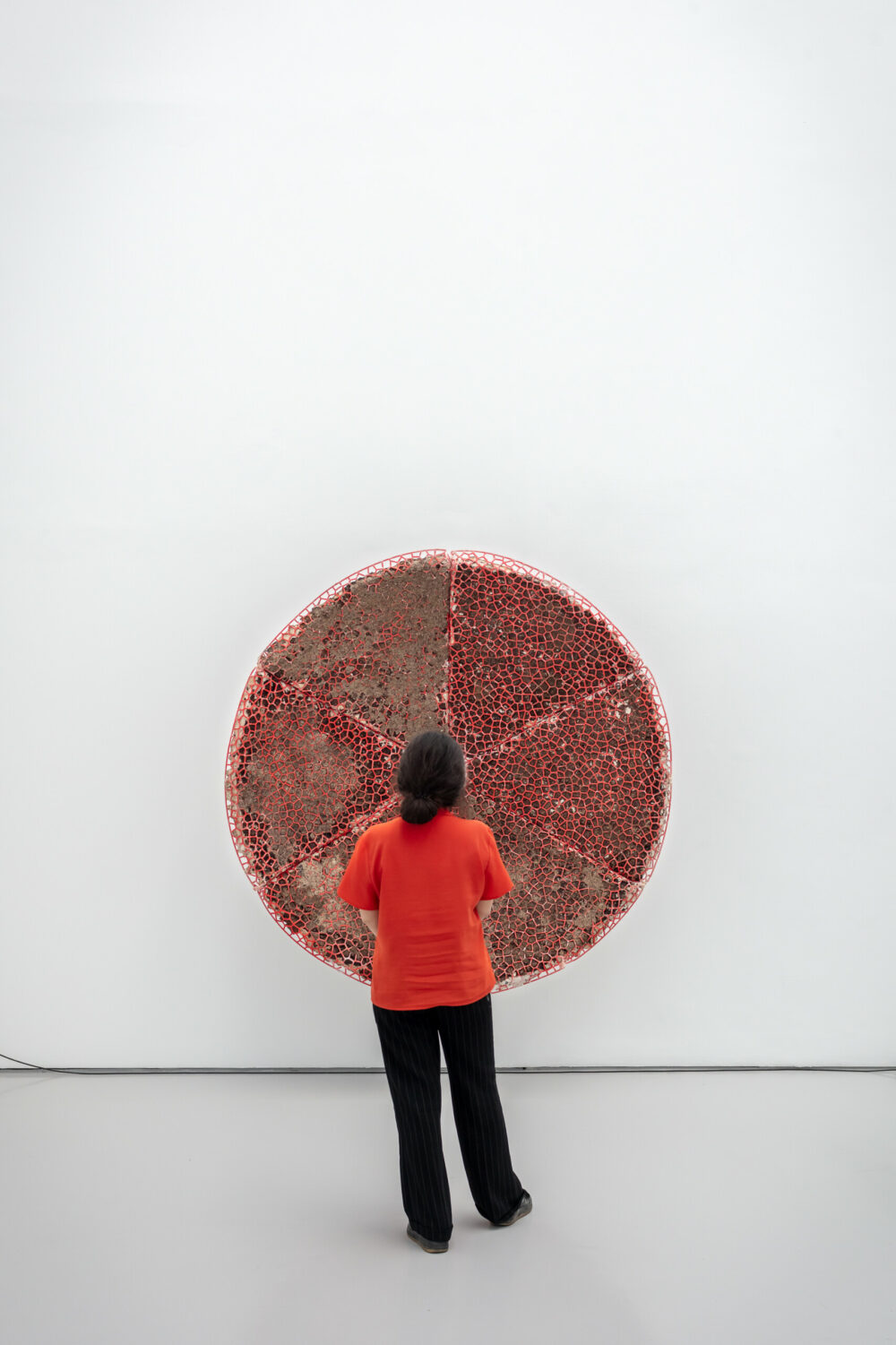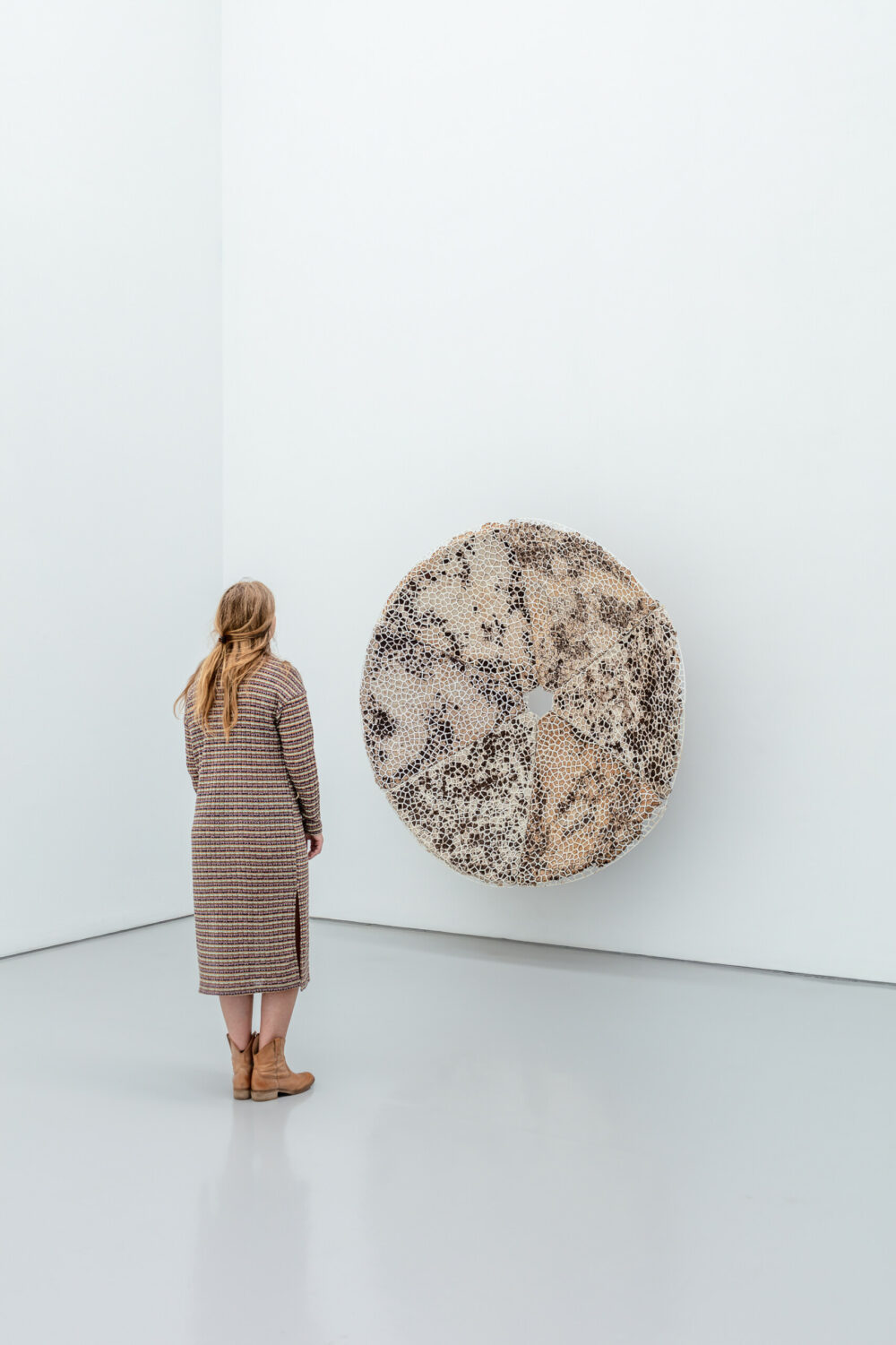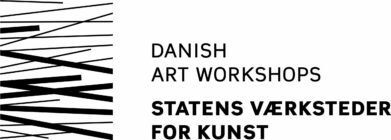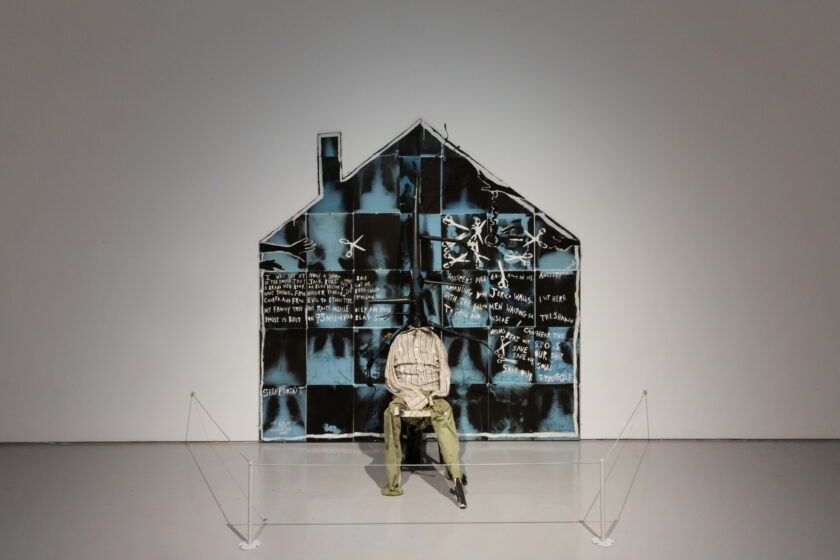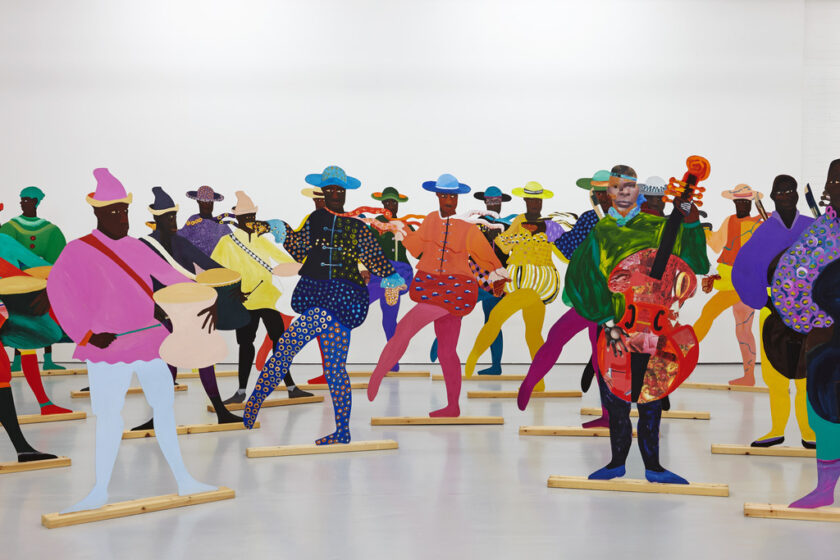Amitai Romm uses scientific approaches and techniques to think broadly about our natural environment and surroundings. In Hum, his first solo exhibition in the UK, Romm explores how nature is mediated by technology, speculating on the hybrid relationships that can be formed between plant life, sensors, data collection processes and our own human bodies.
In the centre of the gallery are two colossal speakers emitting a sub-acoustic drone. Their vibrations are based on near real-time data transmitted from a climate measuring station based in a mature beech forest in east Denmark that produces one of the world’s oldest continuous datasets of carbon sequestration. Romm’s installation, Hum (2022), recodes the station’s raw data into sound waves that are played at around 10Hz: lower than our ears can decipher but powerful enough for our bodies to sense.
Laying and hanging around the speakers are five sculptures, collectively titled Graft (2022), that gently quiver from the inaudible tremors. Made from a 3D-printed mesh structure based on a Voronoi diagram, they are clad in coarse handmade paper made from by-products including decomposing plant fibres (from the forest) and shredded confidential documents (from Spike Island). Taking the shape of parabolic satellite dishes, they are also what Romm refers to as “non-communicative objects”, both familiar and unclassifiable as antennas or listening devices.
Thinking expansively about how we consume and interpret data, Hum casts a critical view on the systemisation of our natural environment and encourages us to think differently about our impact upon it.
Amitai Romm
Amitai Romm (b.1985, Jerusalem, based in Copenhagen, Denmark) studied at the Jutland Art Academy, Akademie der Bildenden Künste Vienna and the Royal Danish Academy of Fine Arts. Recent solo exhibitions include: Macula Lutea, VEDA, Florence (2019); Hibernation, Tranen, Gentofte (2017); and How shall the sea be referred to, Bianca D’Alessandro, Copenhagen (2016). His work has been included in group exhibitions at Moderna Museet, Stockholm; Vermillion Sands, Copenhagen (both 2019); the Dorothea Von Stetten Award, Kunstmuseum Bonn (2018); Kunsthal Charlottenborg, Copenhagen (2017); New Galerie, Paris (2015). In 2018 he was the recipient of the Niels Wessel Bagges Kunstfond and in 2017 he received the Grosserer L.f. Foghts Fond. Romm is a co-founder of Diakron, a studio for transdisciplinary research and practice, and Primer, a platform for artistic and organisational development, located in the headquarters of the global water technology company Aquaporin in Kgs. Lyngby, Denmark.
PARTNERS AND SUPPORTERS
Hum is supported by the Danish Arts Foundation, Danish Art Workshops, Grosserer L.F. Foghts Fund, Knud Højgaards Fund, Major Tom Audio Production and 15 June Foundation.
With thanks to Andreas Ibrom from the Technical University of Denmark; ICOS Sorø; Anthony Finch and Mads Westrup.


